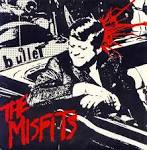2024-06-03
The Man Who Changed Music: A Look at the Legacy of David Bowie
Ah, David Bowie. He’s had a long and varied career as an artist - from Ziggy Stardust to Labyrinth - but no matter what version of him you like most, one thing remains true: he’s always made great music! While his latest releases haven’t been met with universal acclaim (what modern-day artist hasn’t faced the same?), there are still plenty of good qualities to appreciate in the man who changed music for decades. Here I take a look at some of his greatest hits and lowest lows and see why both have secured him a place in rock ‘n roll history.
David Bowie was a figure unlike any other in the world of music. His chameleonic career spanned decades and genres, spanning from the glam rock of Ziggy Stardust to the experimental electronica of Low. Despite his passing in 2016, Bowie's influence reverberates throughout the industry to this day. In this blog post, we'll delve into some of Bowie's most legendary songs and explore how they've solidified his place in the pantheon of rock 'n' roll greats.
Let's start with one of Bowie's biggest hits: Heroes. Released in 1977, it's considered one of his most beautiful and poignant ballads. The song tells the story of two lovers separated by the Berlin Wall, with Bowie's soaring vocals capturing the heartache of longing and the desperation to be reunited. It's a timeless classic that showcases Bowie's ability to tell a story through his music, and remains an essential part of his legacy.
Another essential Bowie track is Space Oddity. The song was released in 1969 and became a massive hit, climbing to the top of the charts. It tells the story of astronaut Major Tom, who becomes lost in space after his capsule malfunctions. The song's melancholy melody and haunting lyrics perfectly capture the feeling of longing for something beyond ourselves. Space Oddity is a perfect example of Bowie's ability to blend narrative storytelling with experimental, unconventional music.
Of course, any discussion of Bowie's legacy would be incomplete without mentioning Ziggy Stardust. The 1972 album of the same name is widely considered one of the greatest concept albums in rock history. It tells the story of a flamboyant, androgynous rock star who becomes a messiah figure before ultimately succumbing to the trappings of fame. The album established Bowie as a superstar and solidified his reputation as an iconoclast who refused to be bound by convention or expectation.
While Bowie has many highs in his career, he also had some lows. One notable example is his 1980 album Scary Monsters (and Super Creeps). The album features a mix of experimental tracks and more conventional pop songs, but it doesn't quite coalesce into a cohesive whole. Despite this, it's still worth a listen for Bowie diehards who want to explore the full range of his work.
Lastly, let's talk about Bowie's final album, Blackstar. Released just days before his death in 2016, it's a haunting, enigmatic exploration of mortality and transcendence. The album took on a whole new dimension after Bowie's death, with fans and critics alike interpreting its themes in light of his passing. While not everyone appreciated the album's experimentalism, its fearless approach to grappling with big questions serves as a fitting end to Bowie's career.
David Bowie was a unique talent who pushed the boundaries of what was possible in pop music. His ability to blend narrative storytelling with avant-garde instrumentation helped him produce some of the most iconic music of the last few decades. Even in his lowest moments, Bowie was never afraid to take risks and explore new ideas. His legacy lives on in the countless artists who continue to be inspired by his work. In short, Bowie changed music forever, and we're all the richer for it.
David Bowie was a figure unlike any other in the world of music. His chameleonic career spanned decades and genres, spanning from the glam rock of Ziggy Stardust to the experimental electronica of Low. Despite his passing in 2016, Bowie's influence reverberates throughout the industry to this day. In this blog post, we'll delve into some of Bowie's most legendary songs and explore how they've solidified his place in the pantheon of rock 'n' roll greats.
Let's start with one of Bowie's biggest hits: Heroes. Released in 1977, it's considered one of his most beautiful and poignant ballads. The song tells the story of two lovers separated by the Berlin Wall, with Bowie's soaring vocals capturing the heartache of longing and the desperation to be reunited. It's a timeless classic that showcases Bowie's ability to tell a story through his music, and remains an essential part of his legacy.
Another essential Bowie track is Space Oddity. The song was released in 1969 and became a massive hit, climbing to the top of the charts. It tells the story of astronaut Major Tom, who becomes lost in space after his capsule malfunctions. The song's melancholy melody and haunting lyrics perfectly capture the feeling of longing for something beyond ourselves. Space Oddity is a perfect example of Bowie's ability to blend narrative storytelling with experimental, unconventional music.
Of course, any discussion of Bowie's legacy would be incomplete without mentioning Ziggy Stardust. The 1972 album of the same name is widely considered one of the greatest concept albums in rock history. It tells the story of a flamboyant, androgynous rock star who becomes a messiah figure before ultimately succumbing to the trappings of fame. The album established Bowie as a superstar and solidified his reputation as an iconoclast who refused to be bound by convention or expectation.
While Bowie has many highs in his career, he also had some lows. One notable example is his 1980 album Scary Monsters (and Super Creeps). The album features a mix of experimental tracks and more conventional pop songs, but it doesn't quite coalesce into a cohesive whole. Despite this, it's still worth a listen for Bowie diehards who want to explore the full range of his work.
Lastly, let's talk about Bowie's final album, Blackstar. Released just days before his death in 2016, it's a haunting, enigmatic exploration of mortality and transcendence. The album took on a whole new dimension after Bowie's death, with fans and critics alike interpreting its themes in light of his passing. While not everyone appreciated the album's experimentalism, its fearless approach to grappling with big questions serves as a fitting end to Bowie's career.
David Bowie was a unique talent who pushed the boundaries of what was possible in pop music. His ability to blend narrative storytelling with avant-garde instrumentation helped him produce some of the most iconic music of the last few decades. Even in his lowest moments, Bowie was never afraid to take risks and explore new ideas. His legacy lives on in the countless artists who continue to be inspired by his work. In short, Bowie changed music forever, and we're all the richer for it.
Tag: David Bowie, music artist, best songs, artist career
2022-11-01
The Musical Journey of Change: From Beginnings to Fame
When it comes to music, Change is one name that instantly strikes a chord with music enthusiasts globally. As a seasoned musician, Change has created a unique and inspiring musical journey that has seen him grow in leaps and bounds...read more
2022-01-01
Suzanne Vega: An Artist with a Story to Tell
For over four decades, Suzanne Vega has been captivating listeners with her emotionally-driven lyrics and mesmerizing melodies. Her music transcends genres, blending folk rock, pop-rock, experimental jazz touches, and world influences to create a distinctive sound that makes many identify with her personal experiences described in each poetic verse...read more
2022-01-01
Warren G: The G-Funk Pioneer Who Defined West Coast Hip-Hop
As a listener, it's hard to ignore the music of Warren G. Whether you know him as one of the legendary pioneers of G-Funk or simply recognize his classic hits like Regulate and This DJ, there's no denying that he has made an indelible mark on hip hop...read more
2024-12-06
Celebrating Frank Sinatra: From His Iconic Swag to Controversial Lyrics
First emerging as a solo artist in the mid-1940s, Frank Sinatra debuted with a swagger that captivated millions—belting out timeless songs like “Strangers in the Night” and “My Way.” A popular figure encompassing his era, he was an inspiration to lyrical poets, visual artists, little old ladies singing in church choirs…and of course generations of admirers who danced along with paso dobles and gentle ballads alike...read more
2022-11-01
The Musical Biography of The Misfits: From Teenagers to Punk Rock Legends
Were you a fan of punk rock in the 80s? If so, then you must have heard of The Misfits. The Misfits was a punk rock band that originated from Lodi, New Jersey...read more
SUGGESTED PLAYLISTS








